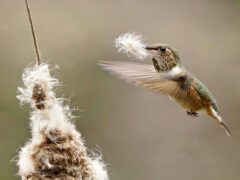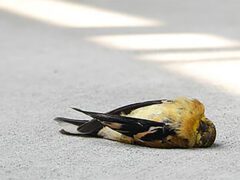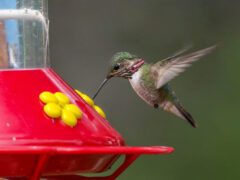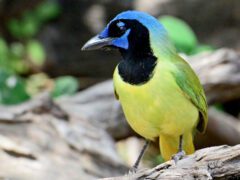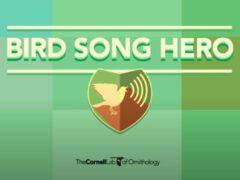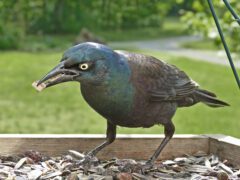Red-crowned Amazon Similar Species Comparison
Main SpeciesRed-crowned Amazon
Fairly large parrot with blocky head, thick neck, and short tail. Escaped birds have set up breeding populations in some U.S. cities outside the native range.
© Madeleine Sandefur / Macaulay LibraryTexas, March 22, 2017Fairly large parrot with flat head and short tail. Leaf green with prominent red patch on forecrown and yellowish tip to tail. Red patch in secondaries of wing are prominent in flight.
© Liam Wolff / Macaulay LibraryTexas, May 17, 2016Fairly large parrot with red forecrown and bluish nape. Often uses bill in addition to feet to grasp tree branches when moving around.
© Alex Smilor / Macaulay LibraryTexas, March 13, 2022Leaf-green parrot that can be very difficult to pick out amid tree foliage. Red forecrown transitions into bluish hindcrown and nape. Note red patch in secondaries of the wing, visible at rest.
© Juan Miguel Artigas Azas / Macaulay LibrarySan Luis PotosíGroups travel from roosting to feeding areas in the morning and evening, often forming small flocks and flying with shallow wingbeats. Note red patch in secondaries on trailing edge of wing, and yellowish tail tip.
© Michael O'Brien / Macaulay LibraryTexas, November 07, 2016Fairly large, leaf green parrots with red on the forecrown. Social and vocal, often feeding in groups on fruits in trees.
© Jeff Hendricks / Macaulay LibraryTexas, November 05, 2016Similar SpeciesLilac-crowned Amazon
Lilac-crowned Amazon
Lilac-crowned Amazons have a blue wash on the crown and nape and less red on the forehead than Red-crowned Amazons. The two species do not overlap in their natural range, although they (and many other parrot species) may coexist in feral or escaped populations in some cities.
© Bradley Hacker 🦜 / Macaulay LibraryCalifornia, November 16, 2016Similar SpeciesMonk Parakeet
Monk Parakeet
Monk Parakeets are smaller than Red-crowned Amazons, with a longer, more pointed tail. They have pale underparts and blue-tipped wings, unlike the Red-crowned Amazon's nearly uniform green underparts.
© Kacau Oliveira / Macaulay LibraryRio de Janeiro, October 08, 2016Don't miss a thing! Join our email list
The Cornell Lab will send you updates about birds,
birding, and opportunities to help bird conservation.




